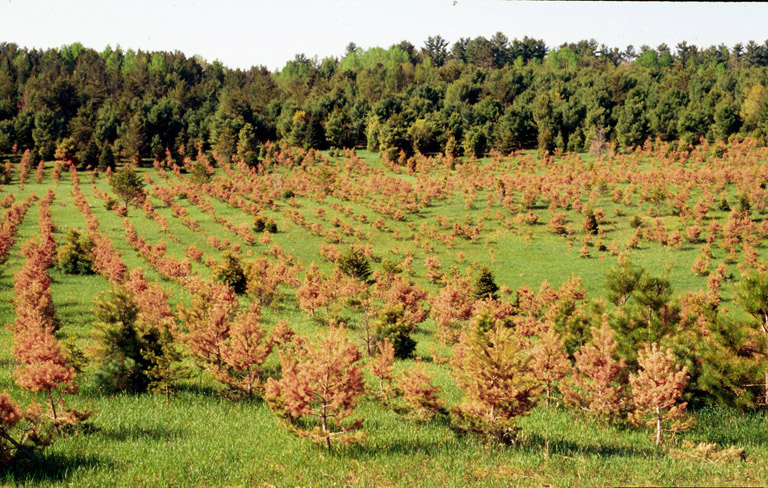Winter desiccation is a common type of winter injury that occurs when the amount of water lost by foliage exceeds the amount picked up by the roots. During winter months photosynthetic processes are slowed, but evergreens continue to lose water at a higher rate than deciduous trees, through their needles and to a lesser extent from exposed bark, twigs, and buds.
No immediate action should be taken with evergreen plants showing winter injury other than supplemental watering if conditions are dry. (With good snow cover, the roots of woody ornamentals are insulated and the snow over provides much needed moisture as it melts on warm days.) And, even though most people put their hoses away for the winter, some winter watering can be beneficial. A slow trickle over the course of an hour when the ground is not frozen will help keep these plantings healthy. Be sure to wait to prune any dead branches or branch tips until new growth has emerged. Mulching always helps to conserve soil moisture and prevent deep freezing of the soil in winter, too.n






